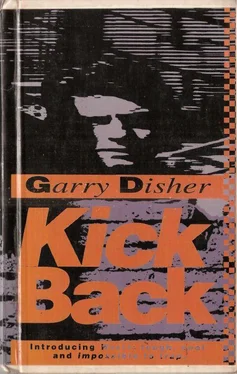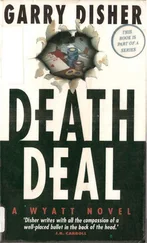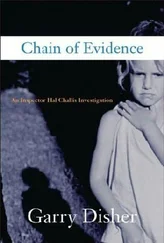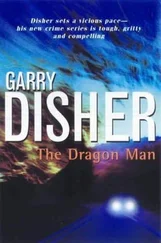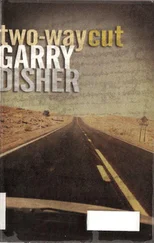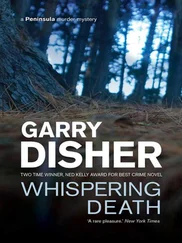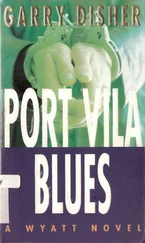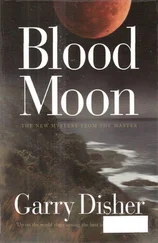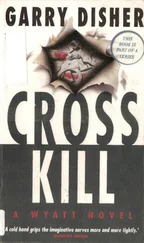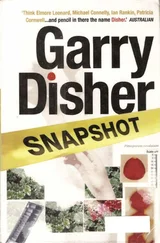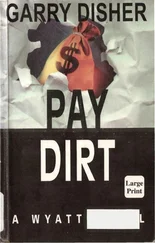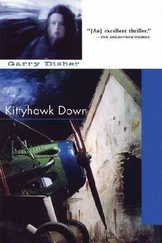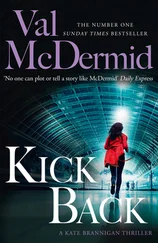Garry Disher - Kick Back
Здесь есть возможность читать онлайн «Garry Disher - Kick Back» весь текст электронной книги совершенно бесплатно (целиком полную версию без сокращений). В некоторых случаях можно слушать аудио, скачать через торрент в формате fb2 и присутствует краткое содержание. Жанр: Криминальный детектив, на английском языке. Описание произведения, (предисловие) а так же отзывы посетителей доступны на портале библиотеки ЛибКат.
- Название:Kick Back
- Автор:
- Жанр:
- Год:неизвестен
- ISBN:нет данных
- Рейтинг книги:3 / 5. Голосов: 1
-
Избранное:Добавить в избранное
- Отзывы:
-
Ваша оценка:
- 60
- 1
- 2
- 3
- 4
- 5
Kick Back: краткое содержание, описание и аннотация
Предлагаем к чтению аннотацию, описание, краткое содержание или предисловие (зависит от того, что написал сам автор книги «Kick Back»). Если вы не нашли необходимую информацию о книге — напишите в комментариях, мы постараемся отыскать её.
Kick Back — читать онлайн бесплатно полную книгу (весь текст) целиком
Ниже представлен текст книги, разбитый по страницам. Система сохранения места последней прочитанной страницы, позволяет с удобством читать онлайн бесплатно книгу «Kick Back», без необходимости каждый раз заново искать на чём Вы остановились. Поставьте закладку, и сможете в любой момент перейти на страницу, на которой закончили чтение.
Интервал:
Закладка:
Wyatt left. In Carlton, and again in Footscray, he encountered heavy football traffic. The victors’ cars seemed to ride high in the fast lane and flow with the green lights, streaming ribbons and scarves. The losers were miserably bunched in family sedans. They progressed in frustrating short surges. Glowering fathers slapped at legs in the back seat. Then it began to rain and a car clipped a bus and Wyatt was stalled in banked-up traffic. The city was moving uselessly, resentfully, into Saturday evening.
By six o’clock he was parked in the alley behind Bargain City. The rear door was locked. He walked around to the street entrance. Metal screens secured the door and windows. There were no lights on. All life seemed to be centred on the video shop and the takeaway cafй. Wyatt returned to his car, pursued by gusts of music, film images, vinegar sharp on fish and chips.
He was covering bases. He drove the two kilometres to Ivan Younger’s house. Ivan liked to say, ‘Footscray is where I was born, it’s where I operate from, it’s where I belong,’ as if he saw himself as a godfather living among his people. His sprawling 1950s brick and tile house was set on a large block of land in a street of workers’ cottages. A high bluestone wall, topped with broken glass, surrounded the house and grounds. Above the steel entrance gate was a security camera. Wyatt stayed clear of the gate, guessing that it would be locked. He stood where he could see through to the house. It appeared to be in darkness.
Just then a child appeared on the footpath. She wore a parka and was clumping home from the corner shop on rollerskates. Her movements were clumsy. She needed her arms for balance, but held them tight against her body, supporting milk cartons and a breadstick. Where the footpath dipped to allow car access to Younger’s gate, she began to lose her balance. She stumbled, clown-like, against the gate.
It swung inwards. The girl, clinging to the vertical bars, swung with it, her skates scooting out from under her, milk and bread tumbling out of her grasp. Wyatt watched her fall onto her stomach.
It was awkward, unexpected, painful. She began to cry. Wyatt saw her turn onto her back, sit up, and test her skates and brush at her knees and elbows. Then she got up, gathered the milk and the bread, and continued shakily along the footpath. He watched her go. There was no-one else in the street.
When she was out of sight he watched the security camera for several minutes. It was the sweep-movement kind, but wasn’t moving. He crossed the road, stepped through the gate, and made his way to the house, avoiding the gravel driveway.
He circled the house once, keeping to the shrubs and trees, and then circled it again, testing doors and windows. The window bars and fancy internal wooden shutters made it difficult for him to see in. All the doors were closed. He didn’t touch them. He assumed they were locked. It was frustrating. Ivan Younger lived alone and he might well be in there, shut away peacefully in an inner room.
Wyatt turned his attention to the garage. The door was open, revealing a shabby Kombi van gleaming dully in the light from the distant street. There was no other vehicle. Wyatt put his palm against the Kombi’s engine panel. It was cold. The doors were locked. He tried the door leading from the garage to the house. It, too, was locked.
He stood for a moment, moodily contemplating the fuse box. It was on the wall of the house, next to the garage door. He opened the grey metal cover, revealing the electricity meter. There was just enough light from the street for Wyatt to see that the power disc was not spinning. Ivan Younger was paranoid about security. He had a camera on the gate and there would be alarms and beams inside the house. These used tiny amounts of power, barely more than a trickle, but enough to register on the meter. The alarm system had been turned off.
Suddenly the disc began to spin. Wyatt froze, and ducked into an area of darkness, expecting lights, alarms, shouting voices.
But nothing happened. He crouched, thinking about it, then realised: the lights and alarms had been turned off but the refrigerator would continue to cut in and out.
Certain now, Wyatt returned to the garage. He found masking tape on a shelf next to twine and tins of glue. Then he walked around to the back of the house. Bathroom windows were always the easiest. He taped over the glass, cracked it with a stone, and removed a broken section near the latch. He reached in, turned the latch, and tugged upwards on the bottom half of the window. Nothing. The window had been locked where the two sections met at the middle. All he could do now was remove the rest of the glass and climb through. He hated doing that. It wasted time, and meant a narrow aperture possibly lined with shards of glass.
Inside the bathroom, Wyatt stood and listened. An old-fashioned clock ticked loudly in the hall. From where he stood in the doorway, he heard nothing else and saw no telltale gleam of light in other parts of the house. It all felt wrong.
This was confirmed in the sitting room. He smelt cordite first, very faint, then saw a human shape in the darkness, in an old armchair facing the television set. Hearing nothing, knowing now that no-one was in the house, Wyatt flicked his torch on and off, long enough to see Ivan Younger’s head slumped on his chest.
He crossed the room and felt for a pulse. There was none. He used the torch again. There was no apparent wound either. He began to feel around the hairline, concentrating on the area where the skull is at its thinnest. That’s where he found it, a small patch of crusted blood. Small calibre, Wyatt thought. Someone who knew what he was doing.
Thirty-nine
It could’ve been anybody.
If someone had money to spend, skills to offer, Ivan did business with them. He would have made enemies over the years. But Ivan worked from the shop, not his house. Whenever Wyatt had bought goods and information from him in the past, it had always been negotiated at the shop. They’d planned the Frome insurance job at the shop.
The body slumped in the comfortable armchair, the unactivated alarm system, spoke of a visitor, someone known or expected.
Here was one twist following hard on the heels of another, and the link was Sugarfoot. Wyatt speculated, testing explanations. Sugarfoot is unnerved by his footbridge plan and asks Ivan to help him. But Ivan is angry with him, says the wrong thing, and Sugarfoot puts a bullet in him. Wyatt could sense Sugarfoot out there somewhere, too afraid to go to the footbridge, too afraid to go home, but still stewing with skewed logic on all the chances denied him, all the debts he was owed.
Wyatt slipped out of the house and drove to a public telephone and called the safe house. Pedersen answered on the first ring.
‘He didn’t show,’ Wyatt said.
Pedersen was silent. Then he said slowly, ‘Hobba didn’t show here. Anna did, but not Hobba.’
Wyatt tensed. ‘But you told him.’
Pedersen’s voice rose. ‘Couldn’t get hold of him. Been ringing all afternoon. Jesus Christ.’
‘You there?’ he said, when Wyatt didn’t respond.
‘I’ve just been to Ivan Younger’s,’ Wyatt replied.
‘Yeah?’
‘He’s dead. Been shot.’
There was a pause. Wyatt continued, ‘I’d say Sugar has finally flipped.’
‘He had a grudge against Hobba,’ Pedersen said.
‘I’ll get back to you,’ Wyatt said. ‘You and Anna stay put. Don’t let anyone in.’
He got back in the rental car. It was seven o’clock and the football fans, refreshed by hot showers, were now pouring into the city. Music called from car to car, as if a nation were mustering. Young teeth gleamed at Wyatt from the dim interiors of customised Holdens, and stereos throbbed like eager hearts. All he could do was hunt for gaps, brake, crawl along.
Читать дальшеИнтервал:
Закладка:
Похожие книги на «Kick Back»
Представляем Вашему вниманию похожие книги на «Kick Back» списком для выбора. Мы отобрали схожую по названию и смыслу литературу в надежде предоставить читателям больше вариантов отыскать новые, интересные, ещё непрочитанные произведения.
Обсуждение, отзывы о книге «Kick Back» и просто собственные мнения читателей. Оставьте ваши комментарии, напишите, что Вы думаете о произведении, его смысле или главных героях. Укажите что конкретно понравилось, а что нет, и почему Вы так считаете.
